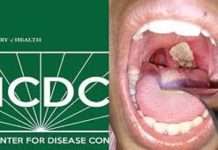Pharm. Adewale Aderemi Oladigbolu is the immediate past chairman, Pharmaceutical Society of Nigeria (PSN), Rivers State, and managing director, Droffilc Healthcare Limited. He is also the chairman, TopTee Pharmacy Limited and managing pharmacist, Sodaton Pharmacy Limited. A Fellow of the PSN, he is an aspirant for the position of national chairman, Association of Community Pharmacists of Nigeria (ACPN), in the election scheduled to hold at the 2021 national conference of the association, holding in Abeokuta, Ogun State, in September.
In this interview with Pharmanews, Oladigbolu, who holds a Bachelor of Pharmacy degree from Obafemi Awolowo University, Ile-Ife, Osun State, and a postgraduate diploma in Business Management from the then Rivers State University of Science and Technology (now Rivers State University), speaks on his vision for the ACPN. Excerpts:
You have been very active in the activities of organised pharmacy groups for years especially that of the ACPN, but how did this interest in ACPN leadership start for you, and what actually prompted it?
In terms of practice, I have been in community pharmacy practice for over two decades. I run TopTee Pharmacy Limited and Droffilc Healthcare Limited. I have been involved in pharmacy activities for quite some time, and I have had the opportunity to serve as secretary of ACPN and PSN in Rivers State. I have had the opportunity to serve as chairman, ACPN, as well as PSN in Rivers State.
At the national level, I have had the opportunity to be part of committees for conference planning, committees on drug reduction services and I have been part of committees for PSN national programming.
Particularly for the ACPN, I served very well in the committees of pharmacy practice that birthed the ACPN NEXUS of blessed memory, and I have had the opportunity to serve in several other committees, too numerous to mention. So I have always been a participant in several ways to make the ACPN and the PSN better.

Were there some major awards given to you in recognition of contributions?
It is very important to note that the positions I mentioned above have been great opportunities to serve the people and drive value for them and as a result of this, I have won numerous awards. To start with, the highest and the most cherished one for me was being made a Fellow of PSN. I cherish it a lot and I think it’s a mark of what I have done over the years for Pharmacy in general.
Also, I received an award of meritorious service from the Director of Pharmaceutical Services, Rivers State Ministry of Health on 17 September 2019. Others include PharmAlliance Leadership Award, 2017; award of honour from PSN-Osun State, 2016; award of special recognition from YPG, Rivers State, December 2020; and an award of excellence for outstanding contribution to the development of ARV refill in community pharmacy in Nigeria from USAID. I am also a recipient of ACPN national award of outstanding service.
You are a contender for the position of the national chairman of ACPN at the next national conference of the association holding in Abeokuta, Ogun State. What are your motivations for coming out and what are your objectives if elected to pilot the affairs of community pharmacists in Nigeria?
I tagged my manifesto a manifesto of “Unity for Posterity”. I want to be the next national chairman of ACPN to contribute my quota to the development of our practice. There are too many gaps in the practice space of community pharmacy in Nigeria. These gaps have existed for a very long time and it’s beginning to appear that some of us that came into this profession with these gaps may retire from the profession with the gaps, if care is not taken. There are gaps in various areas of our practice – from the regulatory authorities to the practice space, as well as in the depth of what we do.
Some of the examples of these gaps are found in the distribution of pharmacy practice across Nigeria. You would recall that, recently, we have been clamouring for the official designation of community pharmacies as primary healthcare provider centers. And the question is, where are these primary healthcare services needed most, if not in the underserved areas?
Of interest and connected to this is the fact that, as of 2019, there were 4,460 registered community pharmacies in Nigeria and 80 per cent of them are located in FCT, Lagos and Rivers State. So, if the government must listen to us and if we must create a future for community pharmacy practice in Nigeria, then it is important for us to expand our reach to the underserved areas.
We are beginning to see symptoms of distress in our sector. For example, pharmacy graduates are beginning to find it difficult to find internship placement and if care is not taken, this may nosedive into complete unemployment and serious underemployment in our sector. So, this poor distribution of community pharmacies across Nigeria is a challenging problem for the value the community pharmacists have for Nigerians.
Close to 70 per cent of Local government headquarters in Nigeria do not have a community pharmacy. In recent years, migration to foreign countries has declined and the primary challenge for Nigeria is inadequate and inequitable distribution of health workers. Consequently, public health programmes with pharmacy components suffer; demand for primary healthcare centres designated pharmacies across the country suffer, due to poor pharma density. The Nigerian pharma space suffers an acute shortage of internship centres and current underemployment in the industry may give way to unemployment, as Nigeria ranks 187 of 195 member countries on WHO ranking.
It will also be of interest for us to note that the collapse of the drug distribution system is affecting community pharmacy practice adversely It is limiting our growth, limiting the number of things we have to do in the community and it’s a minus to the image of the healthcare system entirely.
There are also gaps in the content and context of our practice as many community pharmacists in Nigeria have abandoned extemporaneous preparations. There is no adequate support from the government of Nigeria on vaccine administration in community pharmacies. The problem with the National Health Insurance Scheme still persists, and there are also gaps in the number of people who are practising.
I am also in the race to offer leadership – transparent and accountable leadership; leadership that has a focus on the unity of all pharmacists across the nation for the growth of Pharmacy. If we are focused and united, many of our challenges and gaps would be closed within a very short period of time.
As the next national chairman of ACPN, my objectives are encapsulated in a concept that I called “The Dream”. It is a dream that has to be fulfilled in order to enhance the growth of community pharmacy practice in Nigeria. The first part of it is the “Community Pharmacy Expansion Scheme”. The second is the “Clean Medicine Initiative”, that has to do with the drug distribution system in Nigeria. The third is what I have termed the “Depth and Growth of Pharmacy Practice”. The fourth is the “Leadership Trust Project”.
I believe that if we achieve these objectives, then the community practice will have a new look in Nigeria to the satisfaction of the people that we serve, the professionals and the pharmacy profession itself.
Under the Community Pharmacy Expansion Scheme project, we will aggregate 100 million funds for community pharmacy expansion (CPES Fund) for onward lending to young and few experienced pharmacists, who will establish pharmacies in underserved areas and undergo training under our “Build to Win” programme. We will also promote the implementation of electronic health programmes, with good community pharmacy input. This will include group access to hardware at discounted rates and provision of software at no added cost, with advocacy to the Pharmacists Council of Nigeria for regulatory support.
We are going to have the community pharmacists annual award for best graduating students in six of the schools of pharmacy in Nigeria, while we are going to have an annual award for prospective pharmacy students with the highest mark in JAMB.
Under the Clean Medicine Initiative, we will start a clean medicines campaign with a focus on rational medicines distribution system. We will advocate for an IT-based supply chain platform for medicines in Nigeria, and also have a dedicated, working team on proper drug distribution systems. We will provide support to active NGOs, with clear and related objectives on medicines logistics, and commission studies on quality of medicines within the loop. We will also fund researches on the implications of the chaos in medicines logistics.
Under the project for the “Depth and Growth of Community Pharmacy”, we will have extemporaneous preparations revival programme, which includes training and advocacy for additional credentialing and vaccine administration in community pharmacies. We will rejig the annual national conference for training and credentialing on CAMS, agrochemicals, vet pharm, online training and more. There will also be advocacy for accreditation of private providers of post qualification training, such that their certificate becomes officially recognised.
We shall provide an enabling environment for research-minded community pharmacists to rise to professorial level on the strength of their practice-based researches and publications. We will offer leadership in ensuring that the Gown meets the Town and ensure effective, visible, and value-laden collaboration of pharmacists in academia, research institutions, and community pharmacists.
On the leadership aspect, we have resolved to have the Leadership Trust Project. It is important that we continue to offer transparent and accountable leadership, so that the operations of the ACPN executives will be transparent to those people who invested power in us. We will also establish a good procurement process – don’t forget that I have some background in procurement science – so that our money will be well spent and we will begin to offer more value for the dues and levies that members strenuously pay.
We will also ensure that copies of financial statements are made available on the date of arrival at our national conferences, so that people can study them more and offer advice as we progress. I will also ensure that our activities are properly published and captured in both specialised media and national dailies, and we will offer support to regulatory agencies and establish a very strict governance structures in the administration of ACPN.
In a nutshell, I would like to reiterate that it is the responsibility of leaders to set up structures that will aid the attainment of goals. So we will consolidate on the existing structure set out by the constitution of our dear association, while we work harder to see exponential and sustainable growth
What would you say is the greatest challenge facing community pharmacists in Nigeria and how can this challenge be tackled?
The greatest problem facing community pharmacy practice in Nigeria is the excruciating practice space, which I am confident will be addressed by the Clean Medicine Initiative that I have mentioned earlier. Not only that, we will support the regulatory agencies to be able to do their work better. We will come out with key performance indicators for those who regulate our industry, and we will make this feasible and not judgemental, so that as they support us to practise better, we will also support them to do their practice better.
We will encourage the use of technology in mapping all drug distribution outlets in Nigeria and this will be done in collaboration with the PCN. We will offer IT support to the PCN in every area they may need it, and we will develop the performance indicator with them in order to see that community pharmacy in Nigeria develops.
What are your short and long-term dreams for community pharmacy practice? For instance, where do you hope to see community pharmacy practice in the next five years in the short term and where do you hope to see the practice in the next 20 years?
In the next five years, I would like to see the current practitioners doing better, economically, professionally, and otherwise. I would like to see them becoming more standardised. I would like to see them being certified by the external rating agency. I would like to see them performing at an optimal level comparable to what is obtainable in other civilised countries of the world.










